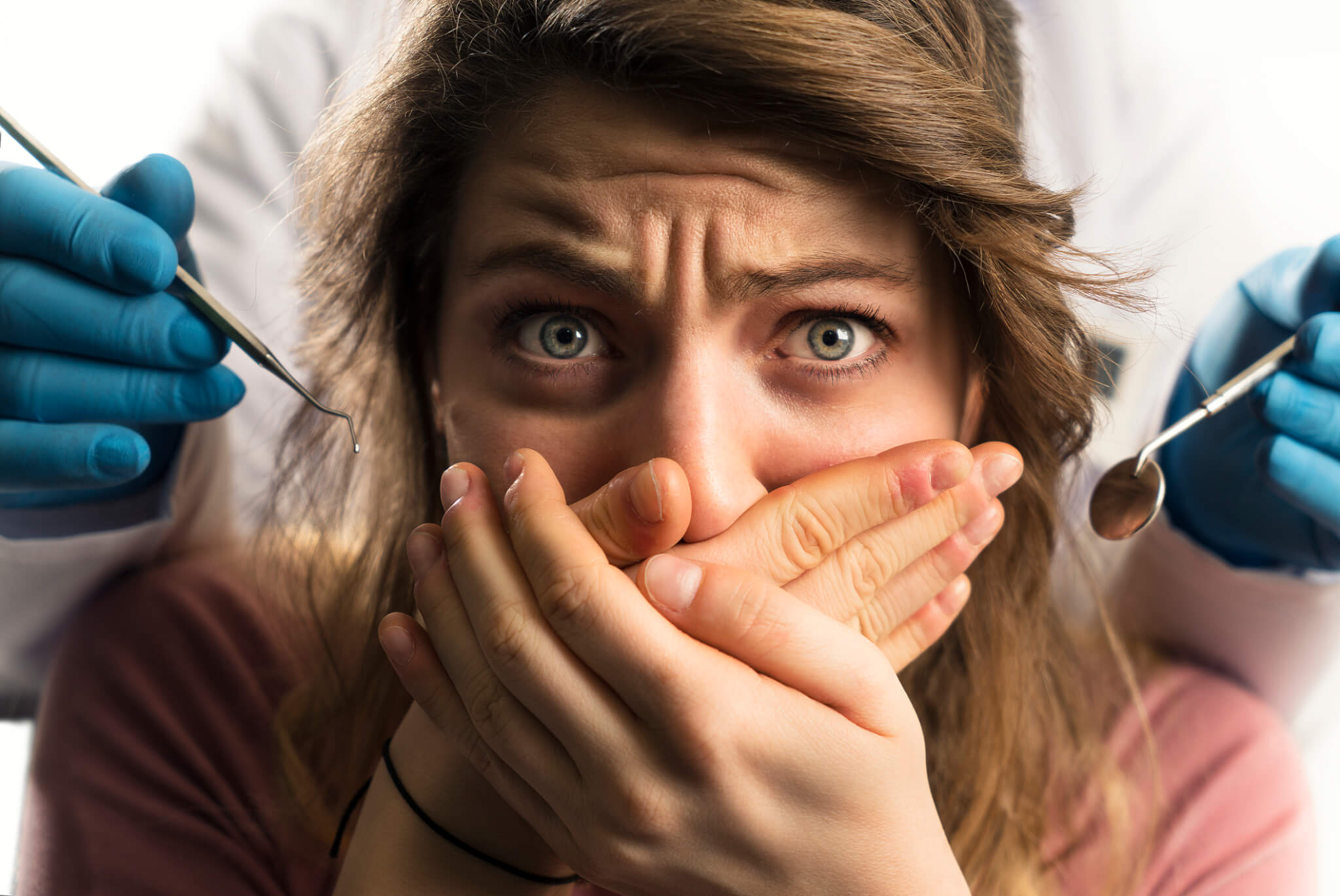We’ve told you about Bruxism (teeth-grinding) and the broader effects of TMJ, but there’s another type of anxiety that can have unwanted impacts on your mouth. Dental fear or phobia is a very real condition. Between 10 to 15 percent of Americans experience some level of dental anxiety, according to an article on Colgate.com. In another study, one-third of adults who didn’t regularly see a dentist were skipping due to fear.
Fear is usually an irrational reaction that can be managed. But in the case of dental anxiety the consequences can be serious. Even those who brush and floss regularly may miss the early formation of cavities, which can lead to root canals if left untreated. Many of the periodontal diseases we’ve told you about have early warning signs that only our trained dentists and hygienists can spot. While they can be serious, these conditions are often easily prevented – but only if you know you have one (or more!) of them.
Signs of Stress
Recognizing that you have dental anxiety is fairly simple. Answering the following questions can help identify an unwarranted fear.
Do you:
- Feel uneasy, nervous, or sick to your stomach before your appointment?
- Have trouble sleeping the night before?
- Feel embarrassed to have someone looking closely at your teeth?
- Worry what problems your dentist might discover?
- Avoid seeing a dentist, maybe even for years between visits?
We Can Help
All of these situations are common for people who have some degree of dental anxiety. The first step is to talk to us about it. Whether on the phone, through a secure web message, or even in-person, we will do whatever it takes to make you confortable before you set an appointment. We have a variety of options for managing your fear, up to and including nitrous oxide and/or a mild sedative.
At Meyer & Johns Dental, we believe that your oral health is too important to ignore – whatever the reason. Connect with us today to start down the path of easing your dental anxiety, and getting back on track to a healthy mouth!

